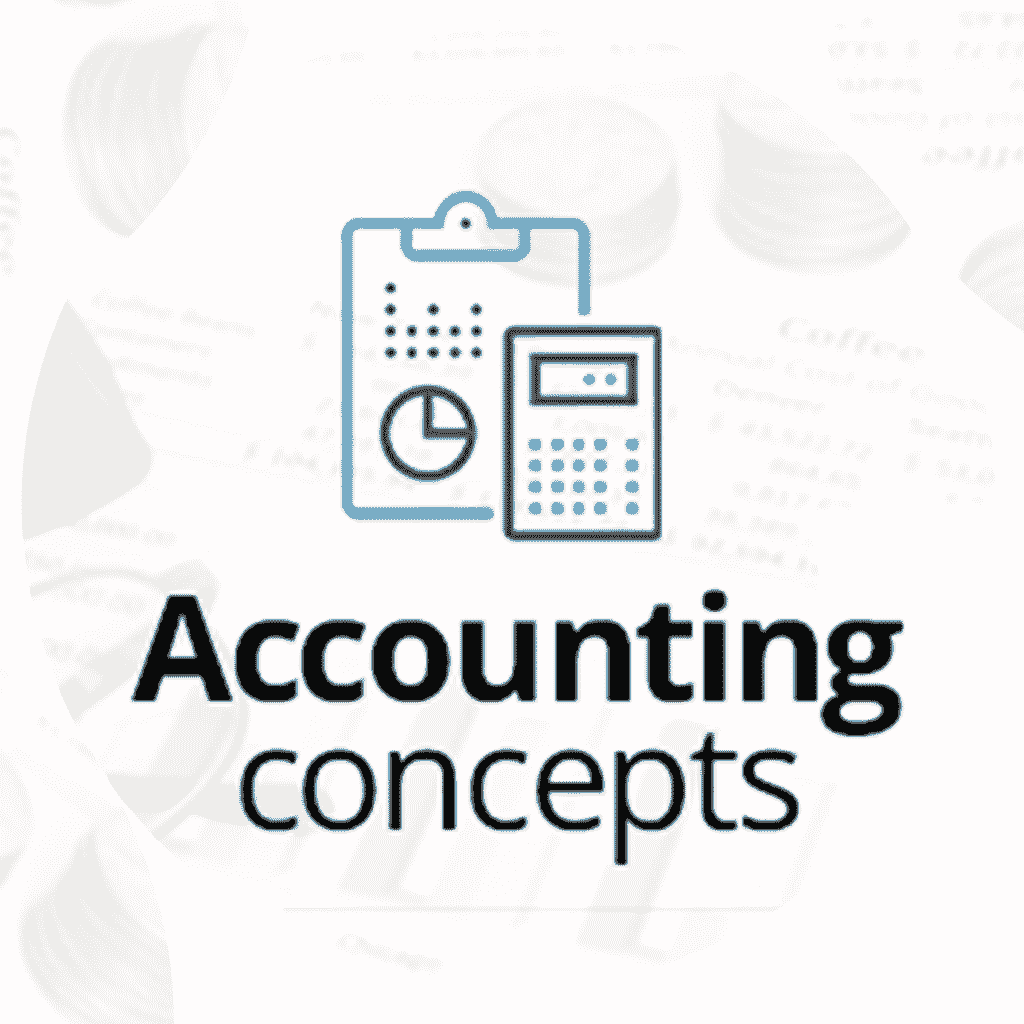What is the Accounting concepts?

Accounting concepts:
Accounting concepts mean and include those basic assumptions or conditions upon which the science of accounting is based. The following are the important accounting concepts:
Business Entity Concept:
According to this concept, a business is treated as a separate entity that is distinct from it owner and all other economic Proprietors. For example, in case of Proprietors firm, though the legal entity of the business and it proprietor is the same, for the purpose of accounting, they are to be treated as separate from each other.
If this concept is not followed the financial status an operating of a business entity cannot be ascertained, In other words, this concept required that for accounting purpose, a distinction should be made between:
Also read | What is Bond-washing Transactions?
- Personal transaction and business transactions and
- Transaction of one business entity and those of another business entity.
While recording facts in accounting the material point is how these affect the business entity and not how these affect the persons who own and manage the business or someone who is otherwise associated with the business.
The concept of separate entity applies to all forms of business organization, whether it is a sole trade, partnership or a company.
Money Measurement concept:
In accounting a record is made only of those facts or transactions that can be expressed in monetary terms. Events For example salary paid to manager is recorded in account books but his competence which cannot be expressed in monetary terms is not recorded in this book.
Also read | What is Gross up of Interest on Securities?
The Money Measurement Concept restricts the scope of accounting as it does not record the fact that there is a strike in the factory or the Production Manager is not on speaking terms with the sales Manager. Accounting, therefor, does not give a complete account of the happenings in a business unit.
Money provides a common denominator for measuring, but it does not take care of inflation which takes place with the passage of time.
Due to inflationary tendencies, the preparation of accounts and statements on the baths of historical costs has made the statements thoroughly unreliable and irrelevant for judging the true financial position of the business.
Also read | What is the Interest on Securities?
Going Concern Concept:
According to this concept it is assumed that the business will continue in future for at least a reasonably long period of time. Business events and transactions are recorded from this point of view.
On the basis of this assumption fixed assets are recorded at actual cost and are depreciated year by year regardless of the fact that market value is greater than the book value of such assets.
According to E.K Kolher, the going concern concepts a concept basic to accounting of importance in, the valuation of intangible assets and the depreciation of tangible and intangible assets continuity to activity is to be true of all forms of business organization.
Also read | What is Vacancy Allowance and Unrealized Rent?
Dual Aspect Concept:
The concept explains that every transaction-have two fold effect. One aspect is debited and the other is credited. It implies that. whenever there is any action there must be opposite equal reaction. Assets must be equal to equities and owner’s capital is the difference between assets and liabilities.
Accounting period concept:
According to going concern concept, the life of the business is assumed to be indefinite and will continue for a long period. But the proprietor of business cannot wait for, such, a Tong period to study the financial position and measure the income of the business. He is in interested to know the progress of the business time to time.
Hence, the accountant choose some shorter period to measure the income (profit) of or progress of the business. The time interval chosen is called the accounting period which is usually one year for external reporting.
Also read | Various types of Perquisites under the Indian Income Tax Act.
Thus according accounting period financial statements should be prepared at regular interval to provide information about financial position and performance of an organization.
The accounting period may be calendar year (1st January to 31st December) or financial year (1st April to 31st March).
Cost concept:
Cost concept is Closely related to the going concern concept. According to this concept, fixed assets of the, business are ordinarily recorded in the books of account at their cost price at which they are acquired.
Cost price is the base for all subsequent accounts for the assets. The change in the value of an assets with passage of time is not recorded in the books of accounts.
For example, if a plot of land is purchased for Rs. 5 lakhs, the asset (Land) would be recorded in the books of account at Rs. 5 Lakhs, this amount is not by subsequent change in the market value of the plot of land.
Also read | Meaning of perquisites in Income Tax.
Similarly, if business has not paid anything for an asset which it acquired, then that asset is usually not recorded in the books of account. For example goodwill is recorded in the books when it is purchased.
Another point is to be noted that the cost concept does not mean that the asset will always be shown at cost price.
It means that the asset is recorded at cost at the time of its purchase but in the subsequent years it, The cost is modified in practice by the principle of conservatism, according to which stock is valued at cost or market price whichever is less
Realization Concept:
According to this concept revenue is considered as earned on the date when it is realized. Revenue is generally recognized when a sale is made or service is provided.
Sale is considered to be made at the point when the property in goods passes to the buyer and he becomes legally liable to pay.
Also read | What is Exempted Income?
This can be well understood with the help of following example. X places an order with Y for supply of certain goods yet to be manufactured.
After receiving the order, Y purchases raw materials, employs workers, produces, the goods and delivers them to X.
X makes payment on receipt of goods. In this case the sale will be presumed to have been made not at the time of receipt of the order for the goods but at the time when goods are delivered to X. In short, revenue is recognized at the point of sale or rendering service.
There are certain exception to this concept:
In case of hire purchase to ownership of the goods passes to the buyer only when the last installment is paid, but sales are presumed to have been made to the extent of installment received and installments outstanding installment due but not received)
Also read | Explain Income deemed to be received in India.
In case of contract accounts, though the contractor is liable to pay only when the whole contract is completed as per terms of the contract, the profit is estimated on the basis of work certified year after year as per certain accepted accounting norms. In case of gold mining revenue is recognized at the point Of production itself.
Accrual concept:
The essence of the accrual concept is that Revenue is recognized when it is realized, that is when sale is completed or services are given it is immaterial whether cash is received or not.
Similarly, according to this concept, expenses are recognized within the accounting period in which they help in earning the revenue, whether cash is paid or not.
Also read | Agricultural Income and Tax.
Thus, according to this concept, we record all expenses and incomes related to a particular accounting period whether actual cash has been paid or received or not.
So as to ascertain correct profit or loss for an accounting period and to show the true and fair financial position of the business at the end of the accounting period.
Therefore as a result of the accrual concept, outstanding expenses and outstanding incomes are taken into consideration while preparing final accounts of a business entity.
Matching concept:
This concept is closely related to the realization and accrual concepts. While the realization concept is concerned with the time of revenues, and the accrual concept is concerned with both revenue and expenses incurred.
Also read | Different between Casual Income and Gift.
The matching concepts is establish a casual relationship between revenues and expenses. Since one of the important objectives of financial accounting is to ascertain the trading result, i.e profit or loss, and neither the realization concept nor the accrual concept is, by it self, unable to help ascertainment of profit or loss, it is necessary to link both by matching concept.



